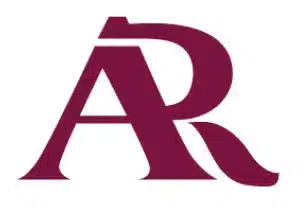Prescription Drug Addiction Withdrawal

Prescription Drug Addiction Withdrawal
Prescription drug addiction withdrawal may lead to life-threatening symptoms that can affect you or your loved ones in many ways.
Table of Contents
What Is Prescription Drug Withdrawal?
Prescription drug addiction withdrawal is associated with dangerous side effects that range from less risky to severe, depending on the patient, how much of a substance they have taken, and many other factors. It is important to learn the signs and symptoms of drug withdrawal, as they may be life-threatening.1
However, sometimes you can become physically dependent on a prescribed medication even if you follow the doctor’s instructions. This physical dependence means you can’t do go through day-to-day life without taking the medication, as your body has started to need it to function.2
Overview of Prescription Drug Addiction
Prescription drugs can lead to addiction and cause physical or psychological side effects when you skip taking the medicine. These psychological and physical effects take the form of withdrawal symptoms. The process of developing withdrawal symptoms from prescribed medicine is called prescription drug withdrawal.
Why Do People Abuse Prescription Drugs?
Prescription drugs can affect any age group, especially teenagers. Most adults and adolescents abuse prescription drugs for several reasons, including for recreational purposes and for feeling good. The most misused prescription medicines include sedatives, painkillers, anti-anxiety medications, and stimulants.
A high number of people abuse drugs for other reasons like:
- Relaxing or relieving tension
- Maintaining an addiction
- Reducing appetite or increasing alertness
- Preventing withdrawal
- Experimenting with the mental impacts of the prescription medicine
- Peer pressure
- Improving work performance or concentration in academic
What Causes Prescription Drug Withdrawal Symptoms?
Medication withdrawal symptoms are your brain’s reaction to the absence of a prescription drug. Withdrawal may occur when you try to reduce or stop using prescription medicine when you are physically dependent on them.
Which Prescriptions Warrant Caution?
Take care if you have been using the below prescription drugs for more than two to four weeks:
- Opioid painkillers and opiates
- Sleeping medications
- Benzodiazepines
- Stimulant prescription drugs
- Gabapentinoids
The severity of withdrawal symptoms depends on your dosage and the prescription drug type. Long-term and chronic drug abuse may lead to life-threatening withdrawal symptoms. Benzodiazepines and opiates cause dangerous physical and psychological dependence and tolerance. They may be hard to stop due to the hazardous withdrawal side effects.
Prescription drug addiction causes both physical and psychological side effects; these will be detailed below
Physical Prescription Drug Withdrawal Symptoms
The physical prescription drug withdrawal symptoms include:
- Muscles and joint aches and pains
- Nausea and vomiting
- Dizziness
- Loss of appetite
- Excessive sweating
- Increased body temperature
- Muscle cramps
- Increased heart rate
- Increased blood pressure
- Seizures
- Insomnia
Psychological Prescription Drug Withdrawal Symptoms
Psychological prescription drug withdrawal symptoms include:
- Panic or anxiety attacks
- Brain fog or confusion
- Aggression or irritability
- Depression
- Strong drug cravings
- Restlessness
- Suicidal thoughts or self-harm intent
Factors Affecting Withdrawal Symptoms From Prescription Drugs
The severity of withdrawal symptoms from prescription drugs varies from one person to the next. These factors also impact the timeline of withdrawal symptoms. They include:
- The type of prescription medicine
- The prescription drug potency and dosage
- The length of consistent drug use
- General physical and mental status
- If you attend a medical detox
- If you take other medications together with the prescription drugs
- If you mix prescription drugs with other drugs, especially alcohol
- If you attend addiction therapy or support groups for withdrawal effects
Prescription Drug Timelines of Withdrawal
The timelines of withdrawal for prescription drugs depends on which drug has been used. Here are some withdrawal timelines for common prescription drugs:
Benzodiazepines
Withdrawing from prescription drugs like benzodiazepines often causes withdrawal effects two weeks after the last dose. These symptoms may go on for months or even years without medical care.
Sleeping Pills
Sleeping pills have a two-to-ten-day withdrawal timeline after you stop using the medications. The physical symptoms may last up to eighteen days or even longer when one doesn’t receive treatment.
Gabapentinoid
The worst psychological and physical withdrawal symptoms from prescription drugs like Gabapentinoid happen five days after quitting the drug. However, post-acute withdrawal symptoms (PAWS) for Gabapentinoid can go on for months if you don’t get the necessary medical attention.
Stimulants
Withdrawal from stimulant medicines like Ritalin or Adderall generally have a four to seven days of physical and mental withdrawal symptoms. Symptoms may last four weeks, whereas a condition such as PAWS may last between three to six months if you don’t seek medical attention.
Why Is Drug Detox Important for Withdrawal?
How to Prevent Drug Withdrawal from Happening?
You can help try to prevent drug withdrawal from happening by:
- Exercising regularly
- Engaging in support group activities
- Finding a detox program
- Eating a well-balanced and nutritious meals
- Staying hydrated
- Having a structured sleeping pattern to improve the quality of your sleep
- Having a support network, either from friends or loved ones

Get Prescription Drug Addiction Withdrawal Help at Arrow Passage Recovery
The medical professionals at Arrow Passage Recovery offer many treatment options for prescription drug addiction withdrawal. We tailor treatments for our patients to help treat their unique needs during prescription drug withdrawal.
Treatment typically consists of counseling, psychotherapy, detox, and withdrawal medicine for treatment. Contact us today if you or a loved one need help overcoming prescription drug addiction withdrawal – we will be with you every step of the way during recovery.
Resources
- https://nida.nih.gov/publications/drugs-brains-behavior-science-addiction/drug-misuse-addiction
- https://nida.nih.gov/publications/principles-drug-addiction-treatment-research-based-guide-third-edition/frequently-asked-questions/there-difference-between-physical-dependence-addiction
- https://nida.nih.gov/publications/drugfacts/treatment-approaches-drug-addiction















